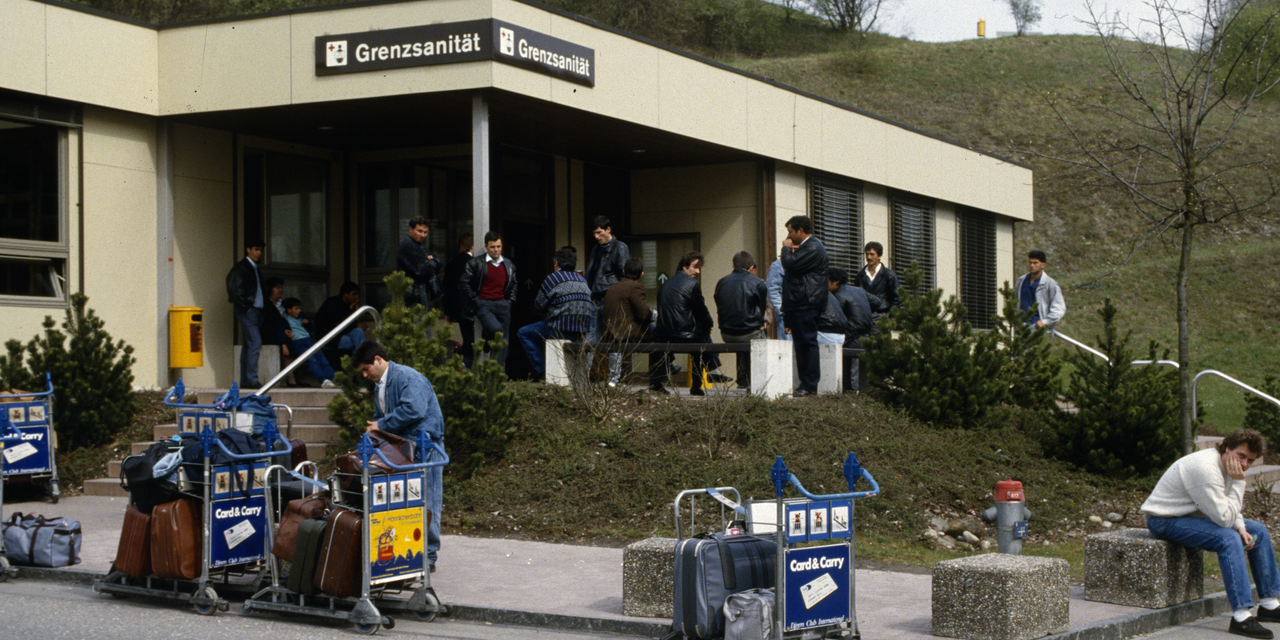

[Translate to English:] Saisonniers warten am Flughafen Kloten auf die medizinische Kontrolle (CC by Comet Photo AG)
This study examines the introduction of electronic data processing in the Swiss Federal Administration from 1964 to 1982 at the intersection of the history of computing and the history of administration. It explores the question of why the computer became a common part of everyday life in the federal administration and how it programmed this everyday life. The few studies available on this topic present the introduction of electronic data processing as an attempt – successful or failed – to respond to the growth of administration in the 1960s. In contrast, this study does not focus on the results of administrative automation, but on the transformation process and interprets the latter as an organizational learning process. The emergence of the Central Register of Aliens at the Federal Aliens Police and its transformation from an instrument of economic policy to an information system for migration authorities exemplifies this process and is therefore the subject of this study. Using reports, minutes, correspondence, manuals, and other sources from the Swiss Federal Archives, the study traces the temporally limited spaces of discourse in which the transformation took place. The analysis of these trading zones focuses on the problems that brought different actors with different goals into a discursive exchange and motivated them to coordinate their actions. These trading zones expose the mutual adaptations between computers and administration and show not only why computers and administration influenced each other, but also how technological change and organizational learning processes interacted.
The project is part of the SNF project Trading Zones. Computers and the Swiss Federal Administration, 1960-1990.
Articles in peer-reviewed journals and edited volumes
Presentations